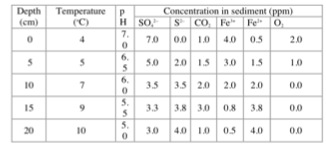|
SOCIAL SCIENCE: This passage is adapted from Leonard W.
Levy's Origins of the Fifth Amendment: The Right Against Self
Incrimination. (1968 by Clio Enterprises Inc.).
|
|
|
Community courts and community justice pre-
vailed in England at the time of the Norman Conquest
[1066]. The legal system was ritualistic, dependent
upon oaths at most stages of litigation, and permeated
|
|
5
|
by both religious and superstitious notions. The pro-
ceedings were oral, very personal, and highly con-
frontative. Juries were unknown. One party publicly
"appealed," or accused, the other before the community
meeting at which the presence of both was obligatory.
|
|
10
|
To be absent meant risking fines and outlawry. After
the preliminary statements of the parties, the court ren-
dered judgment, not on the merits of the issue nor the
question of guilt or innocence, but on the manner by
which it should be resolved. Judgment in other words
|
|
15
|
preceded trial because it was a decision on what form
the trial should take. It might be by compurgation, by
ordeal, or, after the Norman Conquest, by battle.
Excepting trial by battle, only one party was tried or,
more accurately, was put to his "proof." Proof being
|
|
20
|
regarded as an advantage, it was usually awarded to the
accused party; in effect he had the privilege of proving
his own case.
Trial by compurgation consisted of a sworn
state-
ment to the truth of one's claim or denial, supported by
|
|
25
|
the oaths of a certain number of fellow swearers.
Presumably they, no more than the claimant, would
endanger their immortal souls by the sacrilege of false
swearing. Originally the oath-helpers swore from their
own knowledge to the truth of the party's claim. Later
|
|
30
|
they became little more than character witnesses,
swearing only to their belief that his oath was trust-
worthy. If he rounded up the requisite number of com-
purgators and the cumbrous swearing in very exact
form proceeded without a mistake, he won his case. A
|
|
35
|
mistake "burst" the oath, proving guilt.
Ordeals were usually reserved for more
serious
crimes, for persons of bad reputation, for peasants, or
for those caught with stolen goods. As an invocation of
immediate divine judgment, ordeals were consecrated
|
|
40
|
by the Church and shrouded with solemn religious mys-
tery. The accused underwent a physical trial in which
he called upon God to witness his innocence by putting
a miraculous sign upon his body. Cold water, boiling
water, and hot iron were the principal ordeals, all of
|
|
45
|
which the clergy administered. In the ordeal of cold
water, the accused was trussed up and cast into a pool
to see whether he would sink or float. On the theory
that water which had been sanctified by a priest would
receive an innocent person but reject the guilty, inno-
|
|
50
|
cence was proved by sinking—and hopefully a quick
retrieval—guilt by floating. In the other ordeals, one
had to plunge his hand into a cauldron of boiling water
or carry a red hot piece of iron for a certain distance, in
the hope that three days later, when the bandages were
|
|
55
|
removed, the priest would find a "clean" wound, one
that was healing free of infection. How deeply one
plunged his arm into the water, how heavy the iron or
great the distance it was carried, depended mainly on
the gravity of the charge.
|
|
60
|
The Normans brought to England still another
ordeal, trial by battle, paradigm of the adversary
system, which gave to the legal concept of "defense" or
"defendant" a physical meaning. Trial by battle was a
savage yet sacred method of proof which was also
|
|
65
|
thought to involve divine intercession on behalf of the
righteous. Rather than let a wrongdoer triumph, God
would presumably strengthen the arms of the party who
had sworn truly to the justice of his cause. Right, not
might, would therefore conquer. Trial by battle was
|
|
70
|
originally available for the settlement of all disputes
but eventually was restricted to cases of serious crime.
Whether one proved his case by compurgation,
ordeal, or battle, the method was accusatory in char-
acter. There was always a definite and known accuser,
|
|
75
|
some private person who brought formal suit and
openly confronted his antagonist. There was never any
secrecy in the proceedings, which were the same for
criminal as for civil litigation. The judges, who had no
role whatever in the making of the verdict, decided only
|
|
80
|
which party should be put to proof and what its form
should be; thereafter the judges merely enforced an
observance of the rules. The oaths that saturated the
proceedings called upon God to witness to the truth of
the respective claims of the parties, or the justice of
|
|
85
|
their cause, or the reliability of their word. No one gave
testimonial evidence nor was anyone questioned to test
his veracity.
|

















